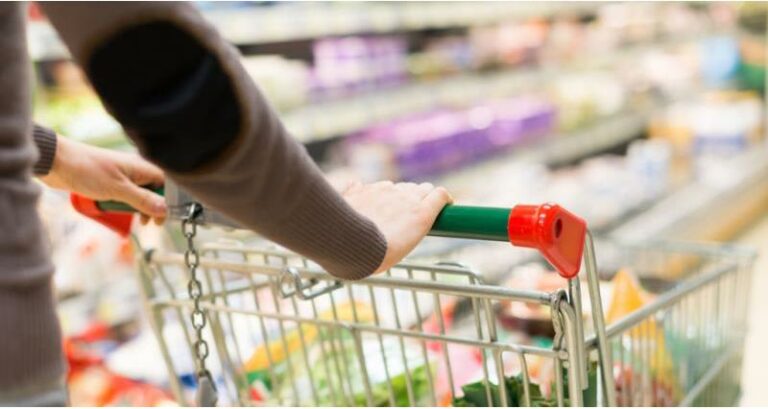The latest grocery market share figures from Kantar show take-home grocery sales rose
Looking at the most recent four weeks, however, the picture is more nuanced, with signs that shoppers are embracing new freedoms and cautiously returning to their pre-lockdown behaviours.
Fraser McKevitt, head of retail and consumer insight at Kantar, said: “As lockdown restrictions are gradually eased and non-
“Despite pubs, bars and restaurants re-opening recently, more than half of consumers say they are still uncomfortable with visiting a pub and 42% with visiting a café or restaurant*. As a result, take-home alcohol sales were still up by 41% this month as people were unable to or avoided drinking out. The cost of working from home is also starting to add up for many. Shoppers spent an additional £24 million on tea and coffee during the past four weeks and £19 million on biscuits. In comparison, sales of some products that were in huge demand as the nation entered lockdown in March are now only marginally higher than last year – with healthcare up by 2% and household products by 3%.”
There are signs that shoppers might be growing more confident and travelling further afield for their weekly shop. McKevitt said: “Convenience stores were a lifeline for many people in the early days of the crisis, providing essential supplies close to home. Sales from these types of stores are still up by more than a quarter year on year, but they attracted 2.6 million fewer shoppers through their doors than at the peak of lockdown in April. Consumers are clearly growing more comfortable getting in their cars or taking public transport, as the average distance travelled to a grocer has gone up to 4.9km, a 10% increase from the April low.”
Co-op, the largest player in the convenience sector, achieved a market share of 7.2% during the past 12 weeks, as its sales increased
The growth in online grocery sales continues and increased to 92% this month, marginally higher than the previous four weeks. McKevitt said: “Although
The challenging economic climate hasn’t yet
Promotional activity at the grocers picked up in the latest four weeks, with 29% of sales including some type of discount. “Retailers scaled back promotions at the start of lockdown as they prioritised serving as many customers as possible and keeping shelves full. Now, they are putting the emphasis back on deals and collectively helped the average household save £45 on groceries this month. Promotional levels are still behind the pre-crisis level of 31% but, particularly given that the 2008 recession led to shoppers seeking out more discounts, we expect the grocers to bring in more enticing offers to attract cash-strapped shoppers in the months ahead.”
All of the big four experienced strong sales growth in the past 12 weeks, in line with the overall market trend. Morrisons, up by 17.4%, grew ahead of the market and gained market share for the first time since 2015, now standing on 10.3%. Tesco sales rose by 15.1%, Sainsbury’s by 13.5% and Asda by 11.0%.
Iceland’s growth reached a new record high of 34.1%, and its market share was up from 2.2% in 2019 to 2.5% this year. Over the 12 weeks, the total frozen food market has increased sales by 22%, the second fastest growing category behind alcohol. Lidl sales rose by 17.3% and Aldi’s by 13.0%, with the discounters collectively holding 13.6% of the market. Waitrose increased sales by 10.9% to hold a market share of 4.7%.


